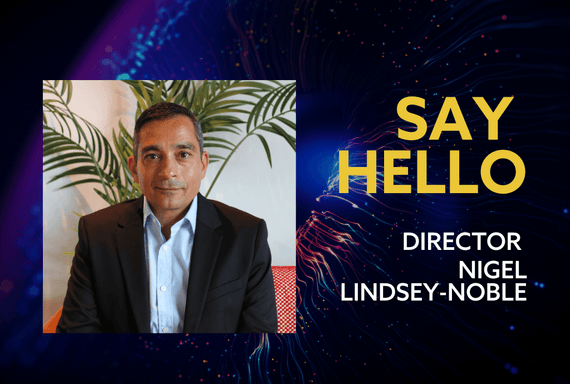Artificial Intelligence (AI) industry has rapidly evolved and reshaped industries worldwide. Companies are introducing AI into their processes, and with that, there is a growing demand for skilled employees to support them. As the demand for AI rises, so does the need for tech professionals to help them innovate and grow. At Source Group International, we know how essential it is for businesses to find the best tech talent, especially in AI recruitment. The AI job market is booming, so acing your AI job interview has never been more important.
According to recent CV-Library data, the number of jobs with “AI” in the job title has skyrocketed by a staggering 129% from January to August 2024, compared to the same period in 2023. "This growth highlights the growing importance of AI in the modern workplace.”
If you’re preparing to enter the world of AI or want to advance your AI career in this high-demand field, this article will have everything you need to succeed, from your AI job application to your AI job interview.
The basics of interviewing for an AI role
The interview will be tailored to evaluate a candidate's skills and knowledge in artificial intelligence and machine learning (ML) to show your AI competencies. Similar to a tech interview, where the interviewer will focus on coding and software development, an AI interview will hone in on areas such as data science, machine learning algorithms and AI ethics, depending on the role, of course!
Interviews may include questions about specific AI techniques, machine learning algorithms, and programming languages such as Python or R. You might also be asked about supervised/unsupervised learning, confusion matrix, neural networks and natural language processing. These interviews often feature coding challenges, theoretical questions, AI ethics and real-world applications. (2)
So, here are our top tips for acing your AI job interview.
Research the company and role
Researching the company and role is crucial for your AI job preparation. Every AI job is different, depending on the company’s needs. To truly impress your interviewer, research the organisation’s AI initiatives, projects, and technologies.
-
Check the company’s website for recent AI advancements or news.
-
Look for case studies or success stories, including AI at the company.
-
Understand their goals, whether improving customer experience, optimising operations, or driving innovation.
-
Ensure you tailor your answers to align with the company’s AI strategies. This will demonstrate that you are invested in their company and values.
-
You should also look on the company's job page for AI roles, like our AI jobs at SGI, to study the job descriptions and what they are lookingx for.
Learn about key AI concepts and trends
AI and ML cover a wide range of topics, from neural networks and deep learning to reinforcement learning and data mining. Ensure you are well-versed in the most important AI concepts and terminologies. You can expect to be asked questions on topics like:
-
Supervised and unsupervised learning
-
Common AI algorithms
-
Deep learning
-
Natural language processing
-
Robotics
-
Computer vision
-
AI models
Take the time to review AI concepts and theories, and make sure you're comfortable explaining them clearly and concisely. (3)
If you’re not feeling up to scratch, there are plenty of courses to take on sites like Udemy and Coursea, that will boost your knowledge in the area. Following AI thought leaders on social media and networking is also a great way to keep updated on AI trends and developments. It’s essential to always stay updated on the latest trends for your artificial intelligence career.
Prepare for common AI interview questions
AI interview preparation is essential. You should expect a variety of questions in the interview, so ensure you’re prepared by researching possible AI questions and answers for technical and behavioural questions. Companies are looking for candidates who not only have a knowledge of AI but who can work well in teams, adapt to fast-changing environments, and communicate complex concepts to non-technical team members. This includes knowledge of machine learning interview questions as well as AI coding interview questions.
Be sure to consider AI Technical interview questions like ‘What are the main machine learning algorithms?’ and behavioural questions like ‘How do you approach ethical dilemmas in AI?’ or ‘Tell us about a time you faced a challenge on an AI project.’
Don’t forget you can utilise AI technologies to do this! Use generative AI to simulate interview questions and real-time scenarios. You can also use AI platforms to analyse your answers and work out how to improve for the real thing.
Look into a comprehensive list of possible AI questions here. (4)
Polish your AI CV and LinkedIn profile
Your resume and LinkedIn profile are often the first things hiring managers see, so make sure they reflect your AI experience and expertise. Include specific skills, certifications, and AI technologies you’ve worked with. Use relevant keywords like "machine learning," "natural language processing," and "data science" to help your profile stand out to recruiters. You should follow these AI resume tips:
-
Focus on the AI skills and experiences most relevant to the position you’re applying for.
-
Quantify your achievements. Instead of just listing duties, highlight the impact you’ve made (e.g., "Improved prediction accuracy by 20% using deep learning models").
-
Include AI-specific certifications! If you’ve completed AI courses or earned certifications (e.g., Google AI, Coursera’s ML specialisation), make sure they are front and centre.
-
Showcase your AI skills with a portfolio, if possible. Interviewers will be looking for hands-on experience, so include any AI projects with details. A strong AI portfolio demonstrates that you are not just familiar with AI in theory but know how to put it into practice.
Conclusion
Acing an AI job interview involves preparing well, knowing AI job strategies and following interview best practices. You need to know the industry and processes well and showcase your knowledge of AI concepts and ability to apply AI in real-world situations. Remember to research the company thoroughly, stay updated on the latest trends, and polish both your resume and interview answers. Following this AI career advice will heighten your chances of AI job success. At SGI, we understand the importance of finding and keeping extraordinary tech talent in the AI space. If you’re ready to take your AI career to the next level, explore SGI AI jobs and let us help you secure your dream role.





